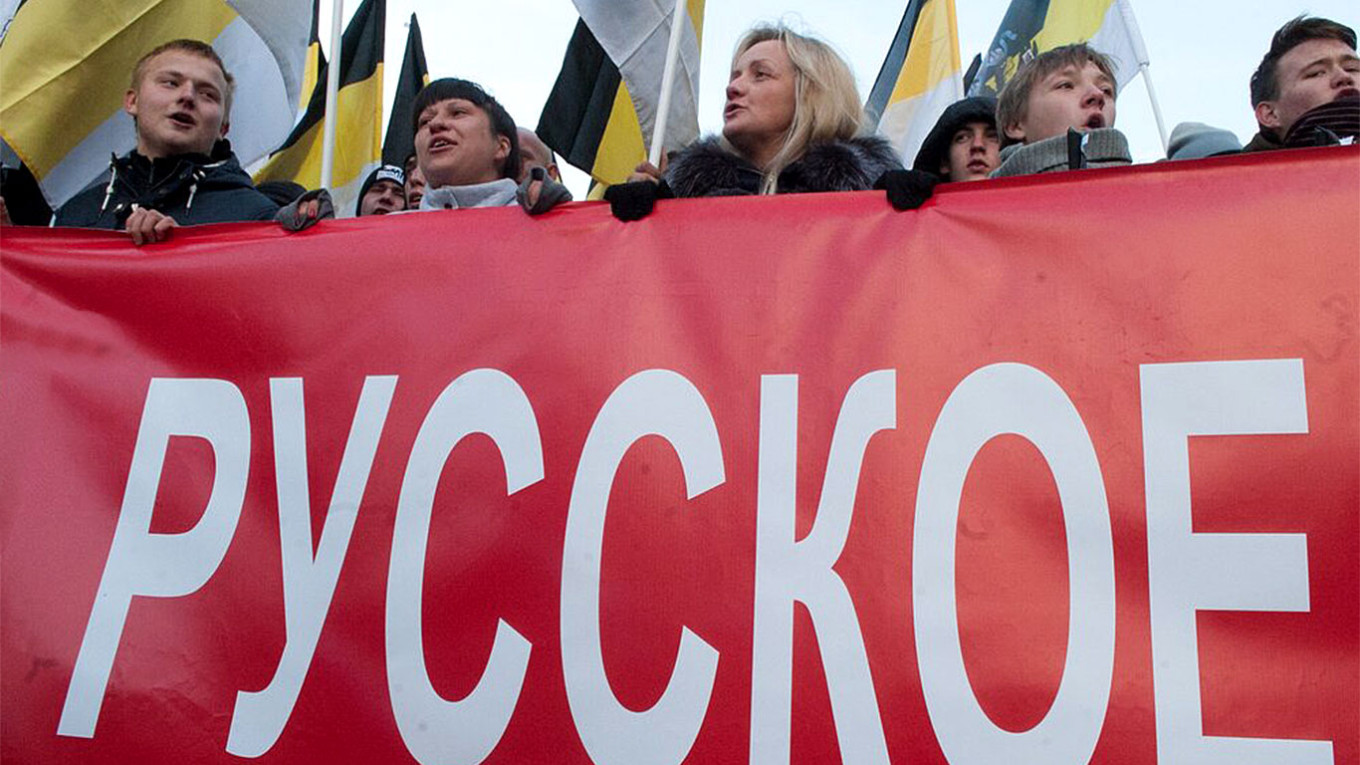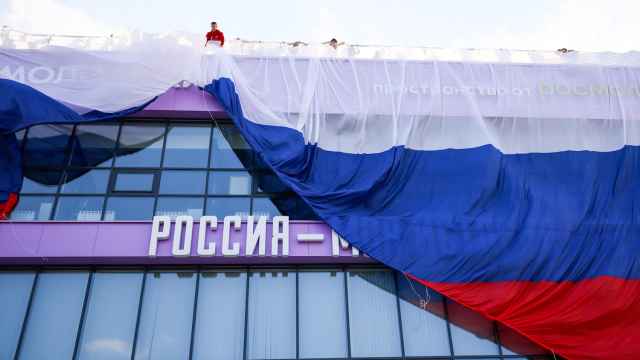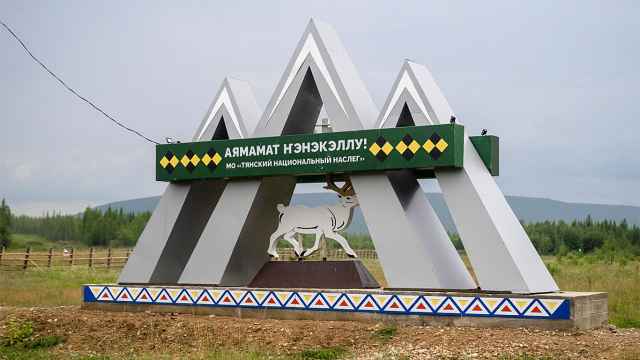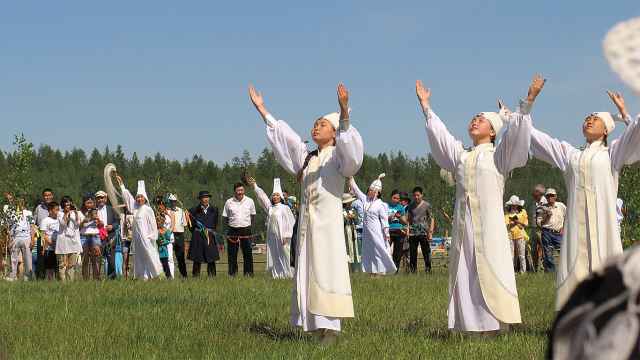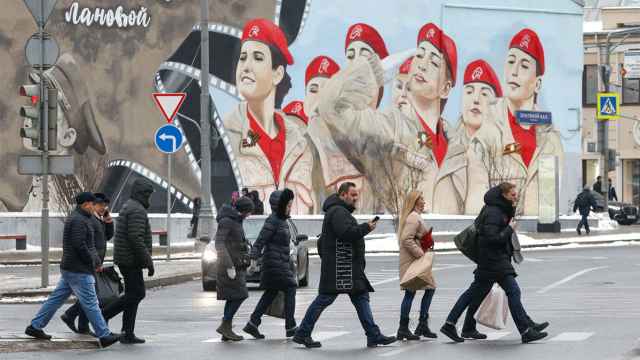Dan Andreevich, a Russian who grew up in Italy, bicycled 5,000 km from Italy to the Russian-Estonian border to spread the message that not all Russians support Russia’s war against Ukraine.
But by the end of his trip, the 18-year-old Andreevich no longer called himself Russian.
“I have Russian blood — but I don't have a Russian mentality,” Andreevich told Idel Realii.
Andreevich is one of many Russian citizens who have reassessed their identity as the country wages war against Ukraine in the name of the “Russian world.” This doctrine of the supremacy of Russian culture and way of life was repeatedly promoted by President Vladimir Putin a year before the invasion.
Russia’s regional and decolonial antiwar activists saw Kremlin’s nationalistic rhetoric as the main reason behind the war in Ukraine. While Putin repeatedly called the war in Ukraine a war “against Nazists,” new anti-war organizations and activists like the Free Buryatia Foundation were publicizing testimonies of racist and xenophobic treatment of Russia’s indigenous people.
“A dam burst and let through a torrent of stories about racism, about the systematic discrimination that we are subjected to all the time,” Dankhaiaa Khovalyg, 27, a Tuva native and decolonial activist told The Moscow Times. “For years in our societies it was not customary to talk about it.”
To represent the people of six Asian republics of Russia using their own words, Khovalyg started a podcast called “Republic Speaking.” Within three months, the podcast had more than 10,000 listeners.
Some Russians who haven’t felt accepted in their own homeland find their ethnic identity becomes more important abroad.
Lilya, 24, is a Tatar born and raised in Moscow who now lives and works in the U.S. In Moscow she hadn’t felt that she belonged because of her appearance.
“You always feel like a minority,” Lilya told The Moscow Times. “At school, people used the word ‘Tatar’ as an insult.”
“There has always been a feeling that there are [ethnic] Russians and there is everybody else. My friends had the same attitude. To say that we are all [including Ukrainians] the same — it's disrespectful.”
Today Lilya explains her identity to American friends.
“In America when people say to me, 'Well, you're Russian,' I say, 'I'm not Russian like that,' and then I tell them that I'm Tatar,” she explained. “It makes for an interesting conversation because not many people outside Russia know how many ethnic groups live in Russia and how multinational we are.”
Maria Thal, 26, is from a German family that lived in the Volga region of Russia for centuries until they were deported to Siberia in 1941. She was born in Russia but has lived in Germany since she was a teenager.
“Nationality is important to me. I’m a Volga German,” Thal told The Moscow Times, explaining that she considered her identity to be both Russian and German.
Although the English language doesn’t differentiate between the words ‘Russian’ (rossiyanin) as a citizen and ‘Russian’ (russky) as a nationality, the difference is important, Thal and Khovalyg say.
“When people who grew up in Russia say ‘russky’ [ethnic Russian], including me as well, they see no problem,” Khovalyg told The Moscow Times, “as if my nationality is not important.”
“There are people from the Republic of Sakha, and the Republic of Tuva with Russian passports,” Thal said. “It is important and correct to say Russian citizens belonging to a certain cultural circle. But if we call them Russians, implying that they are russky [ethnic Russians], then we are erasing people's identity. It is inappropriate.”
As the war continues, the state is trying to consolidate the “Russian world” by showcasing Russian citizens with multi-ethnic backgrounds who support it.
Pop singer Radik Yulyakshin, also known as Elvin Grey, is a Bashkir who lives in the Republic of Tatarstan. He showed his support for the war by making a trip to Russia-occupied Luhansk. Echoing the propaganda message, he said that minorities in Russia should feel like Russians during the war.
“I felt like a Russian here [in Luhansk]. After all, we are Russians now (Bashkirs, Tatars, Chechens, Mari people, and many others). Maybe it's not acceptable to talk about this, but it's true," Yulyashin wrote on his social media after the trip.
However, other measures to consolidate Russian citizens under the “Russian world” have backfired. A billboard to support the war in Kalmykia sparked outrage among local residents. It read: “I’m Kalmyk, but today we’re all Russians,” using the term for Russian by nationality, not citizenship.

An anti-war designer from the Republic of Kalmykia Aldar Erendzhenov responded with sweatshirts that read ‘non-Russian’ (nerussky).
“It's a response to the Russian world, because we have our non-Russian world," Erendzhenov explained in an interview with the media outlet Holod. “We wanted to make the word 'non-Russian,' which is used as an insult, positive. I'm not Russian, and I'm proud of it."
Other citizens of non-Russian ethnicity have embraced Russian identity. Ildar Khayrulin, 25, an English language tutor in Moscow who is half-Tatar thinks of himself as Russian by nationality and says that the word describing nationality should encompass different ethnicities.
“[Nationality] is a made-up thing, so I don't attach that much importance to it,” Khayrulin told The Moscow Times. “I was raised in Russian culture; my friends are the same. We are all boiling in this pot of Russian culture.”
Alyona Porebrikova, 27, also identifies as Russian, although she is Russian and Sudanese who was raised in Moscow and has dual U.S.-Russian citizenship.
She moved to the U.S. after the war started.
“My roots and familiarity with different cultures give me more dimensions, although my primary nationality is Russian,” Porebrikova told The Moscow Times.
“I wouldn't change my identity because of [how war proponents use] the word ‘Russian’ but I can no longer be proud of my country.”
For these Russian citizens, the issue of nationality is secondary to the main issue of finding a way to oppose the war.
“There is sunrise in the morning, there is sunset in the evening, and there is our government,” Kharyrulin said. “We can try to overthrow the sunset, but that seems unlikely to me.”
A Message from The Moscow Times:
Dear readers,
We are facing unprecedented challenges. Russia's Prosecutor General's Office has designated The Moscow Times as an "undesirable" organization, criminalizing our work and putting our staff at risk of prosecution. This follows our earlier unjust labeling as a "foreign agent."
These actions are direct attempts to silence independent journalism in Russia. The authorities claim our work "discredits the decisions of the Russian leadership." We see things differently: we strive to provide accurate, unbiased reporting on Russia.
We, the journalists of The Moscow Times, refuse to be silenced. But to continue our work, we need your help.
Your support, no matter how small, makes a world of difference. If you can, please support us monthly starting from just $2. It's quick to set up, and every contribution makes a significant impact.
By supporting The Moscow Times, you're defending open, independent journalism in the face of repression. Thank you for standing with us.
Remind me later.


